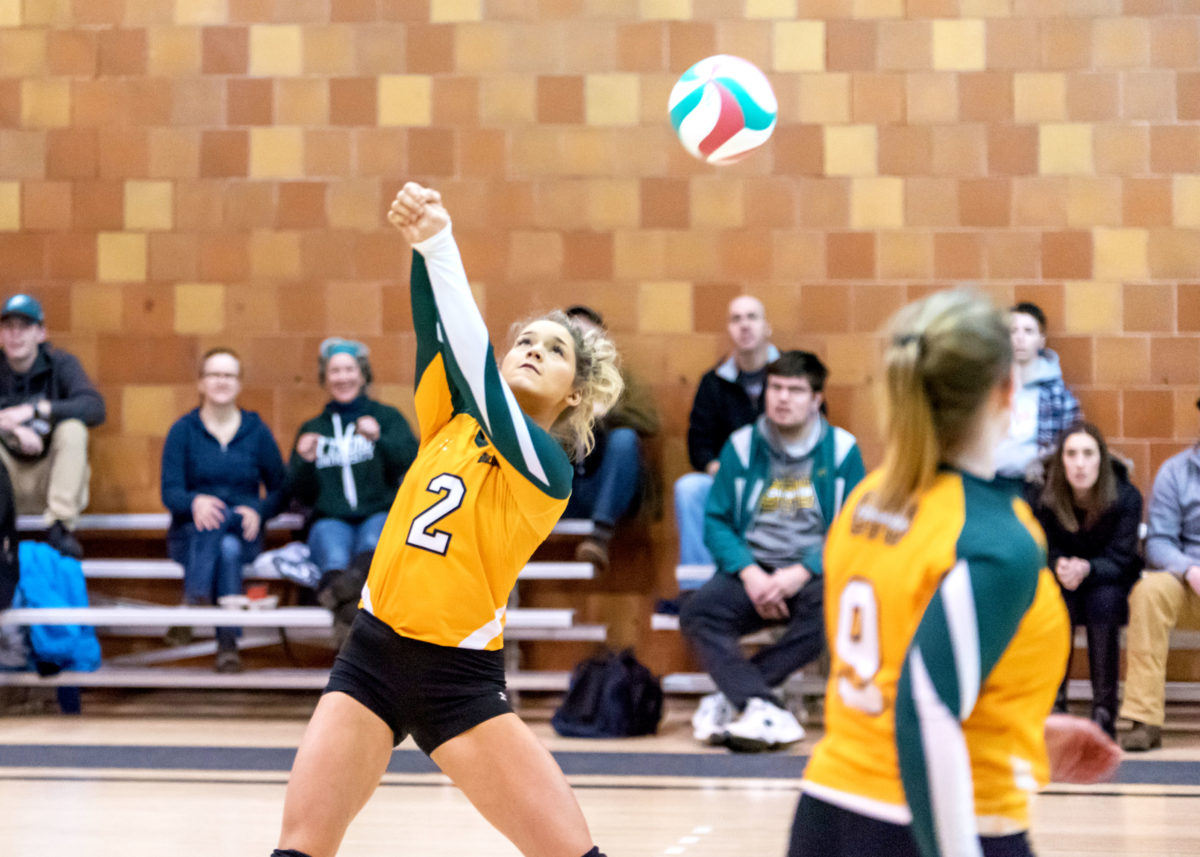We were halfway through practice when I started feeling dizzy. I ran across the court to get a ball and all of a sudden everything went blurry. I fell to the floor, luckily not for long. I was fine, but my coach insisted I sit down until I regained a bit of colour.
I was so embarrassed. I remember sitting in the coach’s office that day and burying my face in my hands. The team’s trainer asked me:
“Did you eat today?”
And I wanted to disappear.
Are you stupid? Do you see what you’re doing? You must be insane! I thought.
I don’t know how I managed to avoid her question, but I did somehow. After politely refusing the bar of dried fruit she had offered me, I rushed outside and waited for my ride home.
The next day at training, my teammates were glad to see I was OK. The only problem was, I wasn’t.
A 20-year-old varsity volleyball player who measures her spinach and hides her leftover food in the side pocket of her gym bag is not OK.
My body may not have matched the stereotypical anorexic figure then, but I knew something wasn’t right. I grew more and more afraid of feeding my body. I told my coaches, my captain and a few close friends about my eating disorder, but I didn’t bother telling my teammates because I didn’t think they’d believe me.
I couldn’t keep up with the hectic student-athlete lifestyle because, obviously, I needed more energy. More energy would’ve meant more food, more food would’ve meant more calories and calories were the ultimate enemy.
Only eat one meal a day or no more than 900 calories a day, run 30 minutes before and after practice, drink coffee, lots of coffee and if you’re still hungry drink some more, try purging or just sleep it off, I’d tell myself.
I just desperately wanted to lose weight.
That year, right before our first championship game, my coach pulled me aside.
“I just don’t feel comfortable putting you on the court right now, it’s not safe,” he said. “We’ll get you back on your feet … there will always be next year.”
I knew he was right, so I took off my uniform, sat on the bench and cheered with what was left of my optimism.
I recall being so embarrassed, walking to the stands and telling my parents why I couldn’t play,
“Too weak? Too weak where? What do you mean, are you OK?” they asked.
I blamed myself for hurting them just like I blamed myself for everything. It was my fault, all of it, because I had chosen to stop eating, chosen to starve my brain, to isolate myself and to let it get out of control. I believed I deserved to be punished for all the stupid decisions I had made.
You did this to yourself, now suck it up, I thought.
It took me months of counseling and self-reflection to finally realize that I didn’t choose any of it. The voice in my head, the one constantly telling me that I was fat, she did. If I could’ve, I would’ve picked up a fork and unleashed myself from the prison I was trapped in. But I couldn’t. Eating disorders aren’t a choice.
Off the court and over time, I figured out how to separate myself from the disorder, learned how to hate it without necessarily hating myself and how to be more empathetic toward my body. I also stopped being so embarrassed.
I realized that I shouldn’t have been ashamed to begin with. I was trying my best even when my best wasn’t good enough. I was much more than the voice in my head trying to drag me in the wrong direction. We all are.
Mental illness isn’t a choice, but recovery is.

